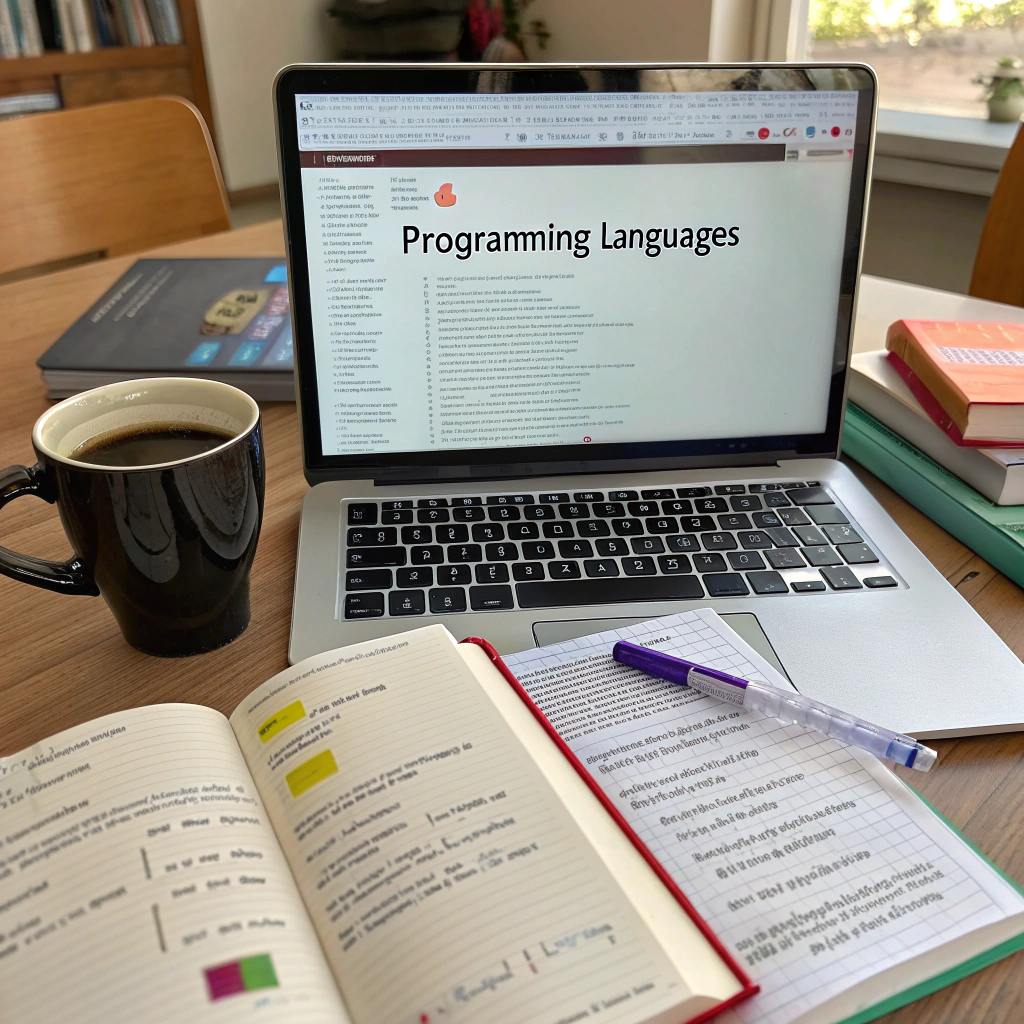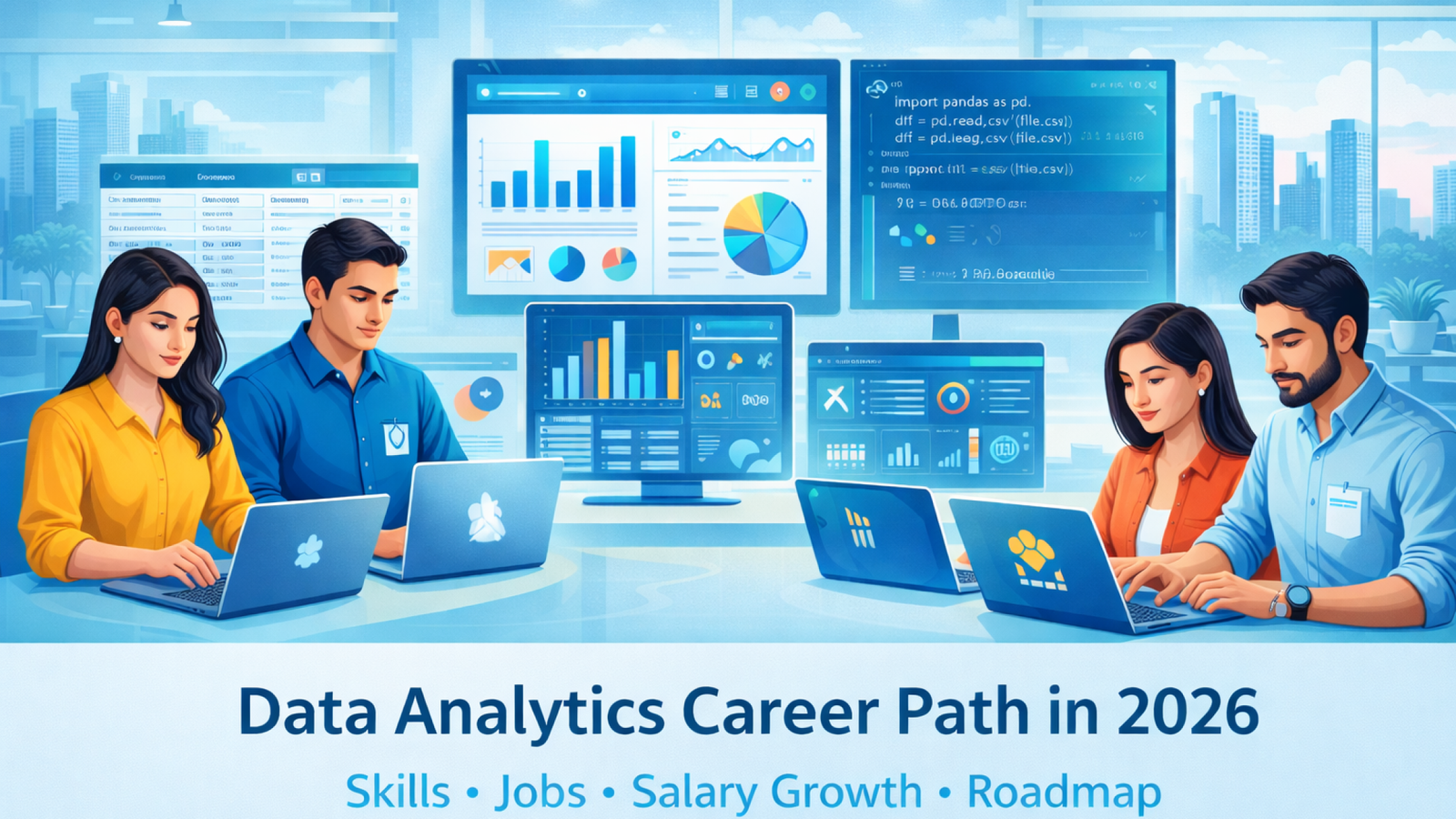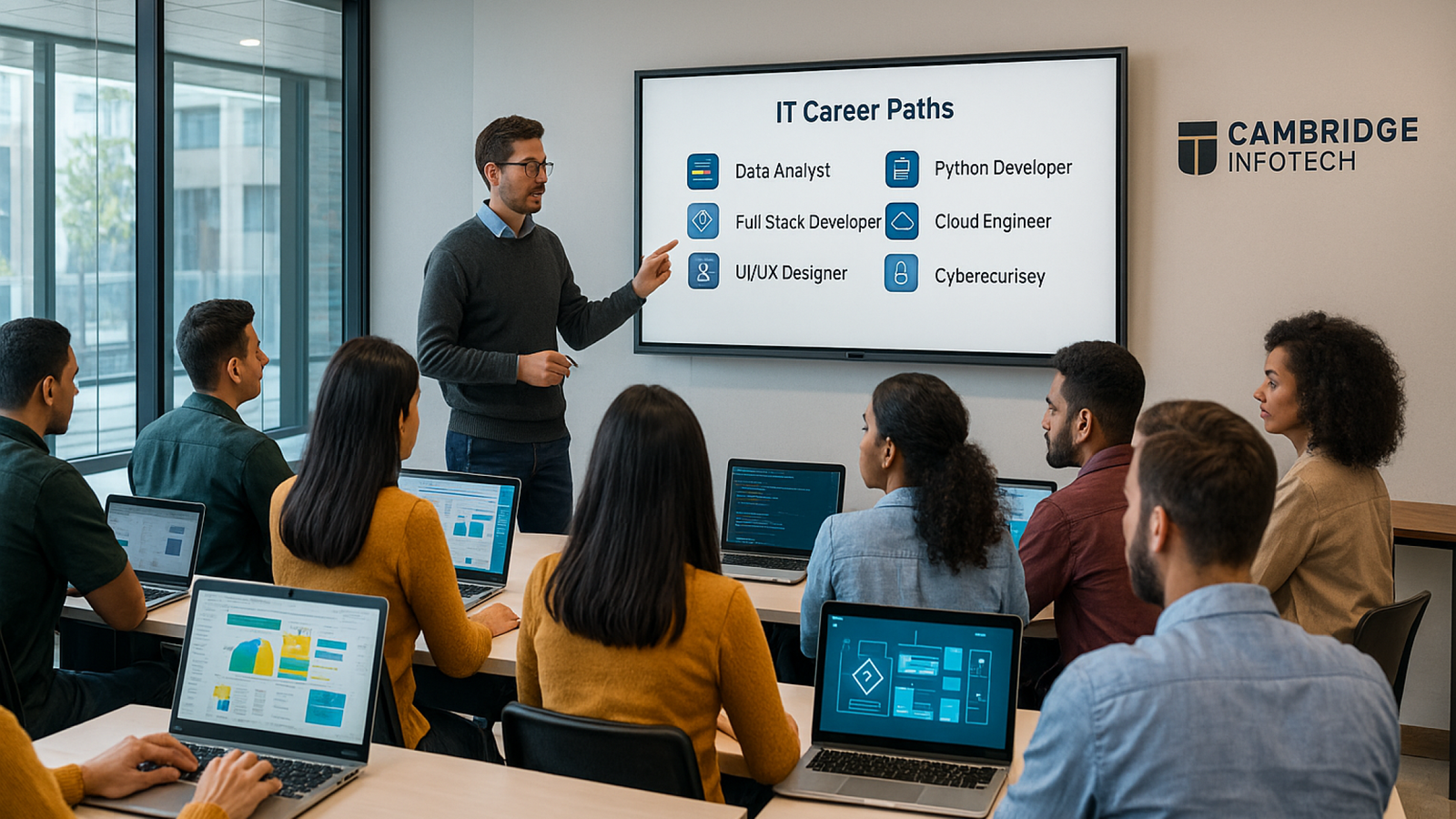Best Programming Languages for Future Careers (2025 Guide)

Intro
In the rapidly evolving tech landscape, choosing the best programming languages for future career growth has never been more critical. As we approach 2025, emerging technologies like quantum computing, AI automation, and decentralized systems are reshaping which programming skills will remain valuable. This guide analyzes the best programming languages for future employment opportunities and long-term relevance.
Why the Best Programming Languages for Future Matter?
Before diving into the best programming languages, let’s understand why your choice matters:
High Demand & Job Security – Some languages are in higher demand than others, ensuring better job stability.
Salary Potential – Specialized languages often command higher salaries.
Future-Proofing – Emerging fields like AI, blockchain, and quantum computing require niche languages.
Versatility – Some languages are multi-purpose, allowing you to work across domains.
Now, let’s explore the best programming languages for the future.
Top 10 Best Programming Languages for Future Jobs
1. Python – The King of AI & Data Science
Why Learn Python?
Dominates AI, machine learning, and data science.
Easy to learn with a massive community.
Used by Google, Netflix, and NASA.
Average Salary: $120,000/year (US) | ₹10-15 LPA (India)
Future Scope: High demand in automation, AI, and analytics.
Learn More: Python Official Website
2. JavaScript – The Backbone of Web Development
Why Learn JavaScript?
Powers 95% of all websites (front-end + back-end with Node.js).
Essential for React, Angular, and Vue.js.
High demand in full-stack development.
Average Salary: $110,000/year (US) | ₹8-12 LPA (India)
Future Scope: Continues to dominate web and mobile app development.
Learn More: MDN JavaScript Guide
3. Rust – The Future of Systems Programming
Why Learn Rust?
Memory-safe and blazing fast (used in Firefox, Dropbox).
Growing adoption in blockchain (Solana) and embedded systems.
Loved by developers for performance and security.
Average Salary: $130,000/year (US) | ₹12-18 LPA (India)
Future Scope: Increasing demand in cybersecurity and low-level programming.
Learn More: Rust Official Site
4. Go (Golang) – The Cloud & Backend Powerhouse
Why Learn Go?
Developed by Google for scalable systems.
Used in Docker, Kubernetes, and cloud computing.
Fast execution and simple syntax.
Average Salary: $125,000/year (US) | ₹10-16 LPA (India)
Future Scope: Critical for cloud-native and microservices architecture.
Learn More: Go Programming Language
5. Kotlin – The Preferred Language for Android
Why Learn Kotlin?
Officially supported by Google for Android development.
Interoperable with Java but more concise.
Growing in backend development (Ktor framework).
Average Salary: $115,000/year (US) | ₹9-14 LPA (India)
Future Scope: Android’s dominance ensures long-term relevance.
Learn More: Kotlin Official Docs
6. Swift – Apple’s Choice for iOS Development
Why Learn Swift?
The primary language for iOS/macOS apps.
Faster and safer than Objective-C.
High-paying jobs in Apple’s ecosystem.
Average Salary: $125,000/year (US) | ₹12-20 LPA (India)
Future Scope: iOS development remains lucrative.
Learn More: Swift Official Site
7. TypeScript – JavaScript with Superpowers
Why Learn TypeScript?
Statically typed JavaScript (reduces bugs).
Used by Angular, React, and Node.js.
Growing adoption in enterprise applications.
Average Salary: $120,000/year (US) | ₹10-15 LPA (India)
Future Scope: Essential for large-scale web apps.
Learn More: TypeScript Documentation
8. SQL – The Database Query Language
Why Learn SQL?
Essential for data analysis and backend development.
Used in MySQL, PostgreSQL, and Big Data.
Always in demand for data-driven roles.
Average Salary: $100,000/year (US) | ₹8-12 LPA (India)
Future Scope: Data is the new oil—SQL remains critical.
Learn More: SQL Tutorial by W3Schools
9. C# – Microsoft’s Versatile Language
Why Learn C#?
Used in Unity (game dev), enterprise software, and cloud apps.
Strong presence in Windows applications.
Integrates well with .NET ecosystem.
Average Salary: $110,000/year (US) | ₹9-14 LPA (India)
Future Scope: Stable demand in gaming and enterprise solutions.
Learn More: Microsoft C# Docs
10. R – The Statistical Computing Language
Why Learn R?
Dominates data analysis, bioinformatics, and research.
Preferred for statistical modeling and visualization.
High demand in healthcare and finance.
Average Salary: $115,000/year (US) | ₹10-16 LPA (India)
Future Scope: Critical for AI-driven analytics.
Learn More: The R Project
How to Choose the Best Programming Languages for Your Future
| Career Goal | Best Programming Language |
|---|---|
| AI & Data Science | Python, R |
| Web Development | JavaScript, TypeScript |
| Mobile Development | Kotlin (Android), Swift (iOS) |
| Cloud & Backend | Go, Rust, Python |
| Game Development | C#, C++ |
| Cybersecurity | Rust, Python, C |
Future-Proof Your Career with Cambridge Infotech
At Cambridge Infotech, we provide cutting-edge training and consulting in the most in-demand programming languages. Whether you’re a beginner or an experienced developer, mastering these languages will boost your salary and career growth.
Need career guidance? Contact Us Today!
FAQs
1. Which programming language has the highest salary in 2025?
Rust, Go, and Python currently offer the highest salaries due to their demand in AI, cloud computing, and systems programming. Senior developers in these languages can earn $150,000+ per year in the US and ₹20+ LPA in India.
2. Should I learn Java in 2025, or is it dying?
Java is not dying—it’s still widely used in enterprise applications, banking, and Android development (via Kotlin interoperability). However, Kotlin is replacing Java for Android, so if you’re into mobile development, Kotlin is a better choice.
3. Is C++ still worth learning in 2025 ?
Yes! C++ is essential for:
Game development (Unreal Engine)
High-frequency trading systems
Embedded systems & robotics
Competitive programming
If you’re interested in performance-critical applications, C++ remains a top choice.
4. What’s the easiest programming language for beginners?
Python is the best for beginners because:
Simple, readable syntax
Huge community support
Versatile (used in AI, web dev, automation)
Other beginner-friendly options: JavaScript, Ruby, and Scratch (for kids).
5. Which language is best for AI and machine learning?
Python is the undisputed leader in AI/ML because of:
TensorFlow, PyTorch, and scikit-learn libraries
Easy integration with big data tools
Strong research and industry adoption
R is also useful for statistical modeling, but Python dominates.
6. Should I learn JavaScript or TypeScript in 2025?
Learn JavaScript first, then TypeScript.
JavaScript is a must for web development (React, Node.js).
TypeScript (a superset of JS) is growing for large-scale apps (Angular, enterprise projects).
Many companies now prefer TypeScript for better code maintainability.
7. Is PHP still relevant in 2025?
PHP is declining but not dead. It’s still used in:
WordPress (powers 40% of websites)
web applications
However, JavaScript (Node.js) and Python (Django/Flask) are better for modern web development.
8. Which language is best for blockchain development?
Solidity (for Ethereum smart contracts)
Rust (used in Solana, Polkadot)
Go (used in Hyperledger Fabric)
If you want a future-proof career in blockchain, Rust is a great choice.
9. What’s the best language for cybersecurity?
Python (for scripting, penetration testing)
C/C++ (for exploit development)
Rust (for secure systems programming)
Bash/PowerShell (for ethical hacking)
10. How long does it take to learn a programming language?
It depends on:
Prior experience (faster if you know another language)
Learning method (bootcamps vs. self-study)
Language complexity (Python is easier than C++)
Estimated time:
Basic proficiency: 3-6 months
Job-ready skills: 6-12 months
Mastery: 2+ years
11. Are traditional languages still among the best programming languages for future jobs?
While languages like Java and C++ remain important, the best programming languages for future opportunities increasingly include modern alternatives like Rust and Go.
12. How often should I reevaluate the best programming languages for future careers?
We recommend reviewing the best programming languages for future relevance annually, with major reassessments every 3 years as technology shifts.
Final Thoughts
Mastering the best programming languages for future technology trends requires both strategic selection and continuous learning. By focusing on languages with strong ecosystems and growing adoption, you’ll ensure your skills remain valuable throughout the coming decade of digital transformation
The Future Belongs to Those Who Prepare Today
The programming languages we’ve highlighted – Python, JavaScript, Rust, Go, Kotlin, and Swift – represent more than just technical skills. They’re your ticket to thriving in the digital economy of tomorrow. Whether you’re drawn to:
Artificial Intelligence and Data Science (Python, R)
Web and Mobile Development (JavaScript, TypeScript, Kotlin, Swift)
Cloud Computing and Systems Programming (Go, Rust)
Blockchain and Cybersecurity (Solidity, Rust)
Each path offers lucrative opportunities for those willing to invest in learning.
Why This Decision Matters More Than Ever
The AI Revolution is creating massive demand for Python developers
Web 3.0 and Blockchain need skilled Rust and Solidity programmers
Cloud Computing continues to boom, with Go as its language of choice
Mobile Development remains strong with Kotlin and Swift
Your Action Plan for Success
Choose Your Focus – Pick one primary language based on your interests
Build Real Projects – Create a portfolio on GitHub to showcase skills
Stay Updated – Follow industry trends through blogs and communities
Consider Certification – Boost credibility with recognized credentials
At Cambridge Infotech, we’re committed to helping you navigate this journey. Our expert-led courses and career guidance can help you:
Master in-demand programming skills
Build a competitive portfolio
Land high-paying tech jobs
The tech world is evolving – make sure you’re evolving with it.
Ready to future-proof your career? Contact our career advisors today
Call us now at – 099024 61116
Check Out Related Blogs
Why is AI Important in Marketing Today – Transforming Customer Engagement & Business Growth(2025)
Future-Proof Your Career: Web Developer Skills in Demand for 2025-2026
Text Message Marketing: Why It’s Important + How to Choose the Best SMS App








